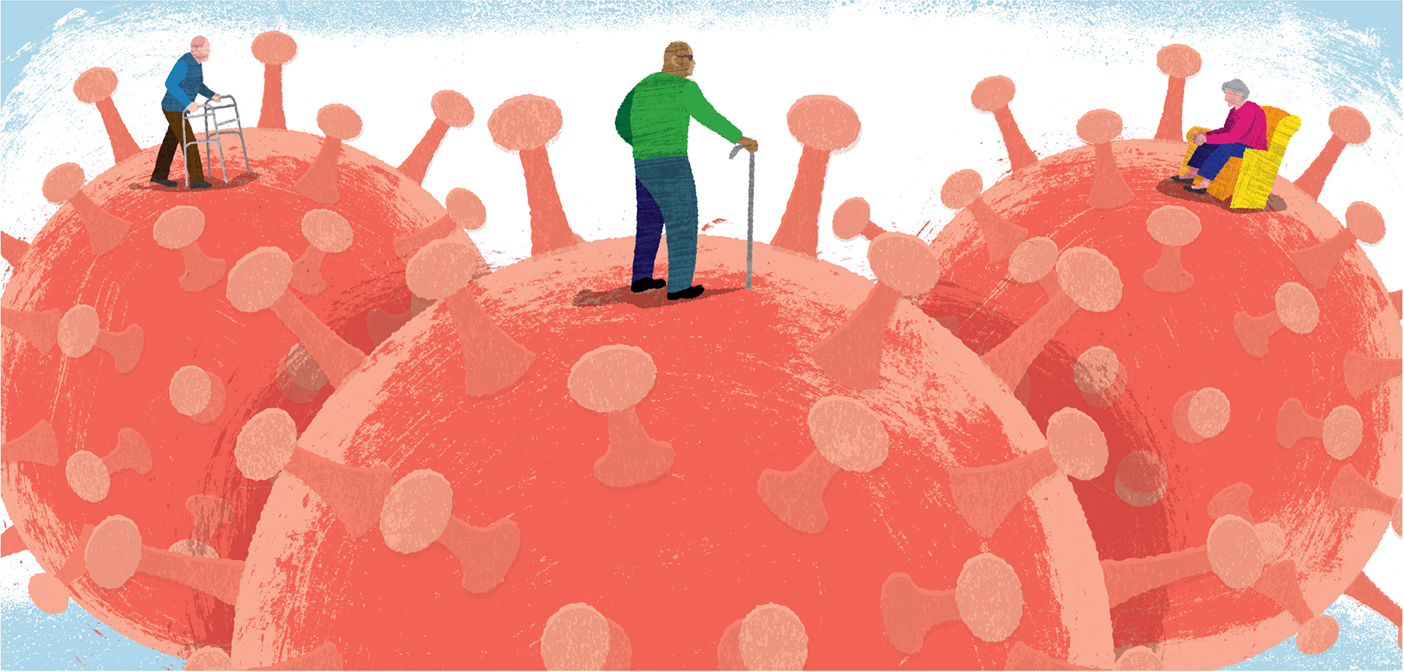WRITTEN BY STEVE ST. ANGELO | ILLUSTRATIONS BY ANDY SNAIR
When calling to mind the image of elderly persons in their happiest moments, chances are we envision days built upon a special event or birthday and involving lots of family and friends. Even the death of an elder relative or parent “surrounded by loved ones” can become a cherished family moment.
On the other hand, it has long been recognized that aging and dealing with associated chronic illnesses (and holidays, birthdays, etc.) alone means far less happy times—and worse health outcomes—for older individuals with limited social activity. Unfortunately, in the time of essential social distancing, the ranks of these folks have swelled:
“In the United States (U.S.), approximately one-quarter of community-dwelling older adults are considered to be socially isolated, and 43% of them report feeling lonely,” Assistant Professor Tamar Rodney, student Nia Josiah, and Assistant Professor Diana Lyn Baptiste report in the editorial “Loneliness in the Time of COVID-19: Impact on Older Adults” (Journal of Advanced Nursing).
Loneliness among the elderly is shown to increase depression and cognitive dysfunction and worsen outcomes with comorbidities such as hypertension, cardiovascular disease, diabetes, chronic respiratory disease, and chronic kidney disease. Thus, shielding them from the virus can perversely make them even more at risk for contracting COVID. The pandemic has been a stark reminder, then, to health care providers of how much these social lifelines mean to keeping older people well and safe—physically and mentally. COVID-19 has changed the role of care providers, particularly nurses, and it has also offered a helpful window on where care for the elderly needs to go from here.
For even COVID-19 will one day leave the elderly alone for good. The skills that nurses have learned as communicators, family go-betweens, and providers of technology for safe social interactions should remain and be built upon, the authors suggest.
